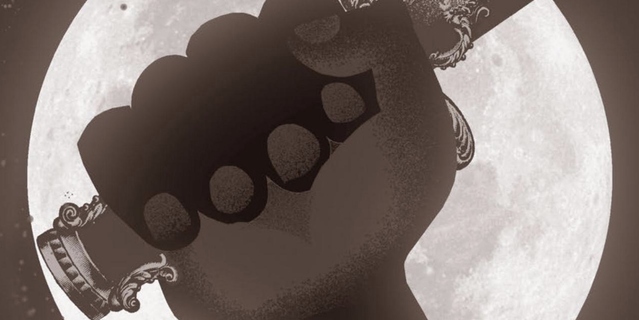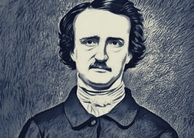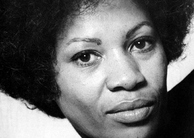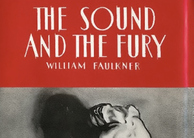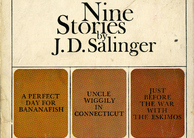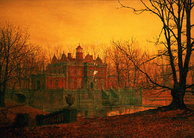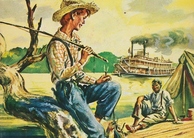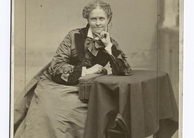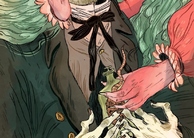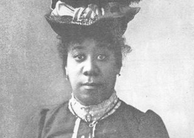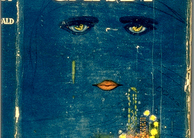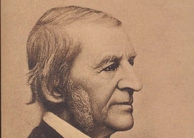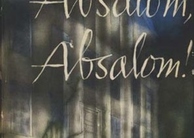|
American Literature (tagged articles)
The keyword American Literature is tagged in the following 29 articles.
2022, Vol. 14 No. 09
The Goldfinch (2013) by Donna Tartt is a novel that explores the conditions of grief and escalating lengths characters will go to survive the traumas and mysteries of life. This story of guilt and loss—intermixed with love and longing&mdash... Read Article »
2021, Vol. 13 No. 12
This thesis explores the inherent conflict between liberty and equality—the twin pillars on which the United States and its Constitution are predicated—and the materialization of this conflict in storm center texts, whose subjects cover... Read Article »
2021, Vol. 13 No. 09
American Transcendentalism (1836-1860), despite having an amorphous and transient lifespan, holds strong importance in American history: religious, philosophical, and literary. Not only did this movement approach societal and spiritual life with... Read Article »
2021, Vol. 13 No. 02
The Virgin Suicides written by Jeffrey Eugenides, as well as Sofia Coppola’s film adaptation, utilize the literary and cinematic tropes of suicide to explore female suicides as romantic notions and assertions of agency within the teenage world... Read Article »
2021, Vol. 13 No. 02
Traditional slave narratives follow a set of conventions that helped abolitionists recognize them as factual and trustworthy stories. Previously enslaved authors subverted those conventions to take control of their narratives and expose white abolitionists... Read Article »
2021, Vol. 13 No. 01
Edgar Allan Poe is known for writing about a wide variety of controversial topics, such as death, murder, and addiction. However, one topic that his work tends to avoid is race and/or racism. Instead, he often chooses to include marginalized groups... Read Article »
2021, Vol. 13 No. 01
The postsecular turn of the late 1990’s refers to the emergence of a critical theory which challenges an important modern assumption: that secular ideologies are inherently more valid and truthful than religious ideologies. Other developments... Read Article »
2020, Vol. 12 No. 09
Sylvia Plath’s posthumously published collection of poetry, Ariel, is perhaps best defined by the vivid imagery that delves deep into Plath’s psyche. Throughout the collection, Plath explores dimensions of herself: her past, present,... Read Article »
2019, Vol. 11 No. 10
Depicting the rugged reintegration of Ichiro Yamada, a no-no boy imprisoned during WWII, Japanese American author John Okada presents a traumatized and conflicted Japanese American community during the mid-1940s in his novel No-No Boy (1957). Applying... Read Article »
2018, Vol. 10 No. 03
Sexual violence and coercion became hot topics in 2017, with endless headlines. However, these problems and issues are not new, nor are they confined to a single segment of society. Rather, they have longstanding roots within patriarchal society... Read Article »
2017, Vol. 9 No. 11
The period of time from the Bebop era to the present—mid-1940s onwards—has been an era of great cultural evolution in the United States, and in few groups more so than the African American community. A factor particularly significant... Read Article »
2017, Vol. 9 No. 05
The character of Benjy Compson from William Faulkner’s 1929 novel The Sound and the Fury is a mythic and Christ-like figure with the divine gift of prophecy rather than the retarded man-child that the other characters in the novel view him... Read Article »
2017, Vol. 9 No. 04
Music functions as a source of healing in Toni Morrison’s Jazz, both to the bird who is inexplicably sad and for the broken relationship between Violet and Joe, the novel’s two main adult characters. The bird cheers up and regains its... Read Article »
2016, Vol. 8 No. 11
J. D. Salinger is a household name in America, but relatively few people know of his Glass family characters. Seven impossibly bright and witty adult siblings and their parents populate his later work, from their first appearance in the short story... Read Article »
2015, Vol. 7 No. 10
People love a good story. A good story can be intriguingly informative, a good story can well up deep emotions and a good story can carry culture, history and tradition. It was through storytelling that many ancient cultures preserved and passed... Read Article »
2014, Vol. 6 No. 11
Since its publication in 1884, Mark Twain’s Adventures of Huckleberry Finn has been construed to have numerous meanings, many of them controversial or unfounded, and the relationship of Huckleberry Finn and Jim in Twain’s book has not... Read Article »
2014, Vol. 6 No. 09
In an interview in The Paris Review (1968), John Updike denies that characterization is a primary goal of fiction. While he believes that narratives can contain psychological insights, he argues that the “substance” of a story is the... Read Article »
2014, Vol. 6 No. 06
As an African American author, Toni Morrison is acutely aware of the pain that is intertwined with the history of her history. She articulates the debilitating physical and psychological strain that slavery, prejudices, and discrimination placed... Read Article »
2014, Vol. 6 No. 05
Ever since its original emergence, Gothic fiction has been shaped by a unique narrative direction that is often described by scholars and readers alike as retrospective, repetitive, or circular in nature. Gothic texts progress as if through a series... Read Article »
2014, Vol. 6 No. 03
Whether real or symbolic, the family and the relationships within family units are a frequent theme in Mark Twain’s classic Adventures of Huckleberry Finn. Because there are many parallels between the characters and events within Huck Finn... Read Article »
2013, Vol. 5 No. 10
Critics often ignore transracial adoption as a literary theme in both Catharine Sedgwick’s Hope Leslie; Or, Early Times in Massachusetts (1827) and Helen Hunt Jackson’s Ramona, A Story (1884), as these two texts’ portrayals of... Read Article »
2013, Vol. 5 No. 08
William Faulkner’s “A Rose for Emily” focuses on the life and death of Emily Grierson, a monumental figure representing the traditional South in her hometown of Jefferson, Mississippi. Although the story begins with her death,... Read Article »
2012, Vol. 4 No. 01
English literature is all-encompassing: it ranges from societal utilitarianism of the didactic through to the celebration of individualism embodied in post-modern work. Literature, as part of a larger cultural body, is both instructive and entertaining... Read Article »
2011, Vol. 3 No. 12
Published in 1767, The Female American, Or, The Adventures of Unca Eliza Winkfield claims to be the spiritual autobiography of an Unca Eliza Winkfield. Like Defoe’s Robinson Crusoe, this narrative is peppered with bits of true historical details... Read Article »
2011, Vol. 3 No. 10
Domestic fiction reigned in women’s literature during the nineteenth-century. These narratives defined ”True Womanhood,” where the female exemplified four pillars: piety, purity, domesticity, and submissiveness. They are meant... Read Article »
2011, Vol. 3 No. 03
Ahab, the monomaniacal ship captain of Herman Melville’s Moby Dick, is a man plagued by revenge. Searching the seas for the whale who took his leg and along with it, his ability to effectively assimilate into society, Ahab continually shows... Read Article »
2011, Vol. 3 No. 01
F. Scott Fitzgerald, as quoted by Matthew Bruccoli, recognized the importance of his own novel and its artistic achievements: “Gatsby was far from perfect in many ways but all in all it contains such prose as has never been written in America... Read Article »
2010, Vol. 2 No. 11
What began in New England in the early nineteenth-century as a reform of the Congregational Church grew into what some scholars consider to be one of the most monumental movements of religion, philosophy and literature in American history. Humbly... Read Article »
2010, Vol. 2 No. 11
William Faulkner’s Absalom, Absalom! begins in the year 1833, when the stranger, Thomas Stupen, rides into Jefferson, Mississippi, and promptly begins building himself an empire. He builds a plantation named Stupen’s Hundred, takes a... Read Article »
Expedited Article Review
Submit an article and get a decision fast.
If you need a fast decision, INQUIRIES Journal offers expedited processing of your submission for a small fee. Depending on the expedited review option you choose, you can receive a decision in as few as 5-days.
In addition to a shorter review period, the fee supports the journal's continued operation and open-access publishing model. Standard submissions are always free. Submit Now » - Submit an Article to Inquiries Journal -
|





